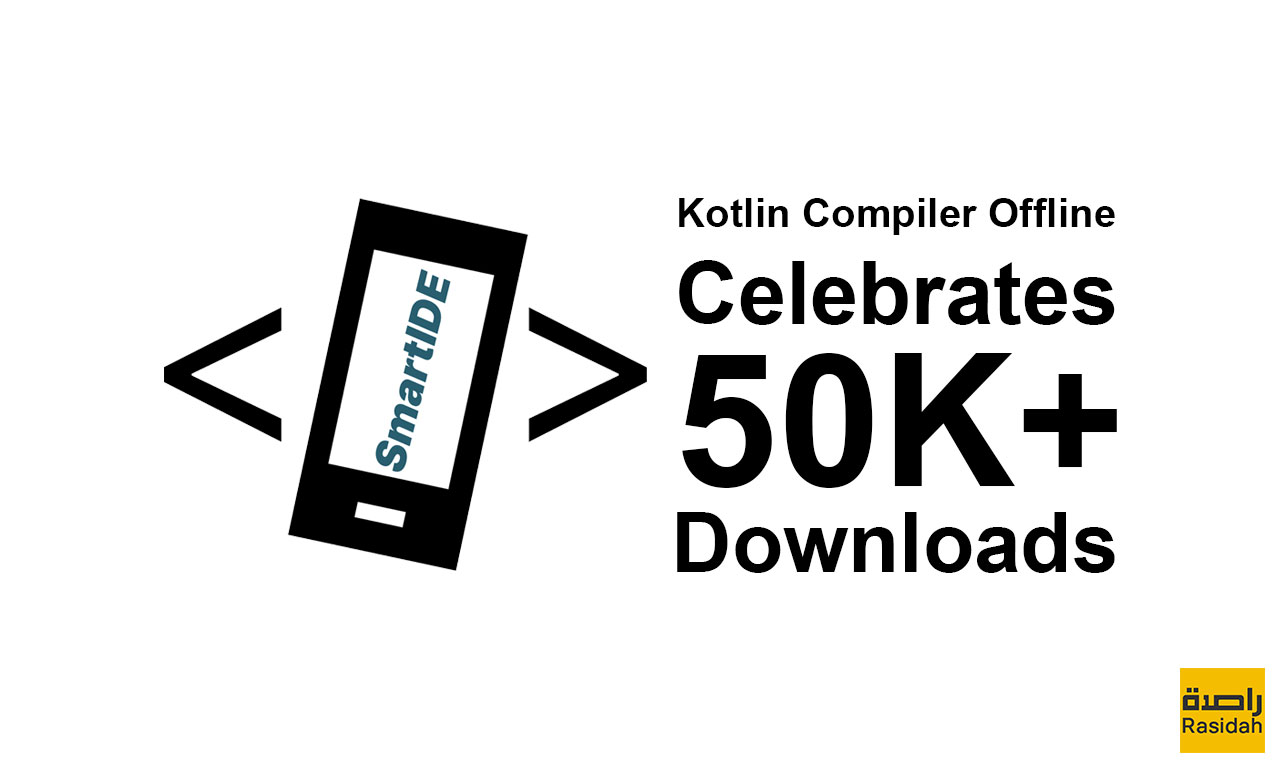Kotlin Compiler Offline Celebrates 50K+ Downloads: Accelerating How We Learn to Code on Mobile
In a world where most development tools demand constant connectivity and powerful hardware, SmartIDE is breaking barriers. Developed by Akram Khan, the mobile-first IDE is now gaining traction across 20+ countries, offering offline coding support for 30+ languages, a Linux terminal, and AI-powered assistance. As it steps beyond the early success of Kotlin Compiler Offline, SmartIDE is shaping up to be the go-to mobile development environment for the next generation of global programmers.

In an age where most developers rely on heavyweight desktop software and cloud-based platforms, a simple, lightweight app has proven that accessibility can triumph over complexity. Kotlin Compiler Offline, a compact mobile tool built for learning and practicing Kotlin programming without needing internet access, has quietly surpassed a major milestone: over 52,800 downloads and 268 reviews, most of them glowing 5 stars.
This achievement is not just about numbers. It's a testament to what happens when a tool solves a real-world problem—particularly for users in regions where stable internet or powerful hardware isn't always available. Designed with mobile-first learners in mind, the app brings the power of Kotlin development right to a user's fingertips, regardless of their location or network access.
Simplicity That Works
The app offers a minimalist yet powerful experience. Users can write, compile, and run Kotlin code directly from their phones. It comes packed with:
- A clean, distraction-free compiler.
- A dark theme for low-light coding sessions.
- A rich library of example programs.
- An offline tutorial section to guide complete beginners.
- Zero ads—ensuring users can focus on coding, not clicking away intrusive banners.
"I've been programming on mobile phones for over three years, starting in 2013," said Akram Khan, who has been in the software industry for over a decade and founder of SmartIDE, in an interview with Rasidah. "Back then, the lack of a proper IDE made things incredibly frustrating. When I finally bought a computer, I knew I had to create something that would help others avoid the struggles I went through."
What began as a barebones app with just a text field and a run button slowly matured into a robust learning tool, thanks largely to user feedback. In its early days, some users gave it harsh 1-star ratings due to bugs or limitations. But rather than being discouraged, Akram treated each criticism as guidance for improvement. "I kept solving complaints and pushing updates. Eventually, even those early 1-star reviewers came back to give it five stars," he said.
Built on Passion, Not Promotion
Unlike many tech projects that pour money into ads, Kotlin Compiler Offline grew organically. "Almost all users came through the Play Store," Akram noted. "I didn't spend anything on marketing—just made sure the product kept getting better."
This organic growth reflects something deeper: a genuine need for tools that work offline, easy to use, and actually useful. Especially in South Asia, Africa, and parts of Latin America, many learners still rely on budget phones with limited internet. Akram's tool gave them a bridge into the world of programming—without requiring a laptop or a high-speed connection.
A Stepping Stone to More
In countries like Russia, India, Brazil, and the Philippines, the app is becoming a popular tool for learners to explore Kotlin, which is the go-to language for Android development.
After the success of Kotlin Compiler Offline, Akram didn't stop there. He launched SmartIDE, a much more powerful and feature rich platform. And it's also growing rapidly, with over 2.78k downloads and 56 reviews in just a few months.
A New Chapter with SmartIDE
SmartIDE is quickly becoming the centerpiece of Akram’s development vision. With support for over 30 programming languages—from Python and JavaScript to Solidity and Elixir—an integrated Linux terminal with more than 2,600 packages, and AI-powered coding assistance using GPT-4o, it’s designed for serious coding on mobile, without compromise.
What makes SmartIDE stand out is its ability to provide a full-stack development experience from a phone. Users can code, debug, run scripts, manage files, and even simulate server environments—all offline. It’s the kind of tool that empowers developers who don’t have constant internet or high-end devices.
Future updates are expected to make the platform even more powerful, with smoother package management, advanced debugging tools, and potential integrations for one-click deployment. Akram has also expressed interest in building educational partnerships to help young students learn to code with SmartIDE in classrooms.
Whether you're an experienced developer or someone just getting started, SmartIDE is setting a new benchmark for mobile development. It’s no longer just about basic code practice—it’s about bringing the full power of coding to the palm of your hand.
Related Articles

TechnoNext Is Hiring: Unlocking Opportunities in Bangladesh’s Thriving Tech Sector
In a bold move to strengthen its footprint in Bangladesh’s fast-evolving tech sector, TechnoNext Software Limited is opening doors to a wide range of tech professionals—from software engineers to cybersecurity experts. This hiring campaign reflects not just growth, but a commitment to shaping the country's digital future through local talent and innovation.

Bangladesh’s Anonymous Workplace Review Site Deshimula Sparks Industry-Wide Debate
A newly launched website in Bangladesh, Deshimula.com, has rapidly become the center of debate within the country’s tech industry. Offering anonymous reviews of workplaces, the platform gained popularity among software engineers but soon faced legal backlash and was briefly shut down. Now back online with stricter moderation and identity verification, Deshimula continues to spark mixed reactions — seen by some as a tool for accountability and by others as a source of unchecked negativity.
